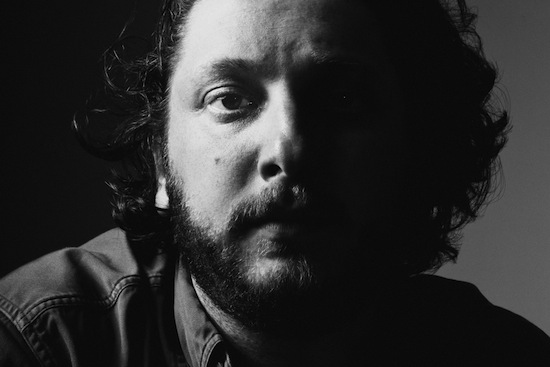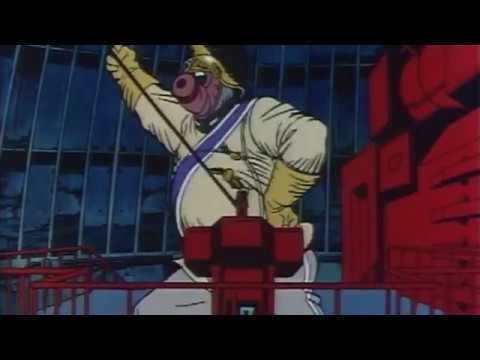Photograph courtesy of Timothy Saccenti
This weekend, Abandon Normal Devices will be taking over the Jodrell Bank observatory in Cheshire to host their own investigation into the universe’s outer reaches for a two-day event, Watch The Skies!, as part of the BFI’s Sci-Fi: Days of Fear & Wonder season. On Friday, October 3, there’ll be a screening of 2001: A Space Odyssey, preceded by a science fair put on by Jodrell Bank scientists and a new AV commission from Soup Collective, responding to a now-lost interview with Sir Bernard Lovell conducted in 1966 for a prologue to Stanley Kubrick’s film, projected onto the observatory’s mammoth main telescope named after Lovell. The next day will see a screening of Ridley Scott’s Alien, preceded by a specially-commissioned soundtrack to Magnetic Rose, the rarely-seen 1996 film from Japanese anime luminary Koji Morimoto. Full details are at AND’s website here. Ahead of the event, tQ film editor Mat Colegate talked to 0PN, aka Daniel Lopatin, about the score.
What was it that finally confirmed you as a fan of science fiction?
Daniel Lopatin: Ender’s Game. I was mostly into science fiction literature as a kid and some shows like Star Trek: TNG and Deep Space Nine. I liked the metaphysical quandary aspect as a kid as most kids do. There’s a great DS9 episode about a woman from a zero gravity planet who is otherwise handicapped in the high gravity environment aboard Deep Space Nine. It poses a lot of emotional questions about notions of abnormality. It’s stuff like that which makes those shows so great.
Katsuhiro Otomo is most regarded for being the creator of Akira, pretty much the first anime feature to get major exposure in the West. Were you a fan of the film at the time? I certainly remember it being a huge deal when it came out.
DL: Maybe around 1995, so well after its release. My friend’s brother worked at a video store and would always have tapes lying around the house, so we got to absorb a lot that way. My memory of seeing Akira for the first time is vague. I do think that the music was compelling on some basic level, like I had never heard anything like that before. The first anime I watched was actually a hentai called Alien From The Darkness at a girl’s house in my neighbourhood who would throw parties all the time because she had absent parents.
What other anime, if any, did you watch? Fist Of The North Star, Ninja Scroll, etc?
DL: Vampire Hunter D, Fist Of The North Star, Ghost In The Shell, NGE, Wicked City, Memories, Genocyber, Perfect Blue. I like the darker stuff usually and it doesn’t have to be masterful although some of those are. I tried getting into Miyazaki’s films but it didn’t interest me as much, which probably means I’m dead inside. But I did well up during Grave Of The Fireflies, so maybe God will forgive me.
Do you still watch anime now?
DL: Yeah, from time to time. I’m behind on the new stuff. A couple years ago I got obsessed with NGE. I’m going to give Texhnolyze a chance soon.
Did you become a fan of Otomo’s comic books as well?
DL: Never got into manga or any comics really.
The soundtrack to the animated Akira was extremely striking. Am I wrong in saying that there’s a pronounced Geinoh Yamashirogumi influence on R Plus Seven?
DL: That’s very true. Actually Matt Werth presented me with a beautiful copy of Ecophony Gaia recently. I guess in very broad terms; the spaciousness and silence found in Japanese music has made an impact on me. Specific to Geinoh, their co-mingling of FM synthesis and spiritual music, their modular approach to structure which creates the feeling of landscape or of a journey, unequal spacing and pitch, all of that has influenced me in some way I’m sure.
What kind of sci-fi do you tend to enjoy? Are you a fan of the more measured, intelligent films (2001, Solaris, etc) or do you prefer going for broke with the high octane approach of Terminator, Starship Troopers et al?
DL: I do like the sentiment of going for broke with the high octane approach of __. I think science fiction poses interesting technical challenges for film and I’m always interested to see how a film will characterise made-up forms and objects artistically. In science fiction, anachronisms are inevitable and I don’t find the irony of enjoying those aspects to be that interesting. That doesn’t mean philosophically-driven science fiction is any better or worse. I mostly just want new sensations, like whether it’s an idea about the origins of our civilisation as characterised by a cryptic obelisk, or the palpable texture of a xenomorph, or the pleasure of gore, or the more quiet horror of Lem’s sentient ocean. The thing that bonds all of my favourite art and music and whatever is their capacity to suggest a universe liberated from platitudes and instead filled with strange and interesting things.
You’ve done soundtrack work in the past, would you consider there to be a narrative element to your music? Do you have a ‘story’ that you are trying to tell over the course of an album?
DL: Score is primarily about adding fresh dimensionality to a film while having that fresh dimensionality appear as if it’s native to the film. It’s a bonus emotional enhancement layer that we accept as a part of a film’s truth, but it can easily just not be there, or it can explode into the foreground, but either way it’s ultimately deferential to the film. For that reason I don’t have any need to consider it when making my own music. The exciting thing about "soundtracking" Magnetic Rose live is that I could actually put that sub/dom relationship to the test a little bit by working with film towards my own idiosyncratic results. It was originally suggested to me that I perform to a muted version of the film, which didn’t appeal to me on a few levels. For one, I liked the film audio and wanted to use it in some way. Also, Otomo’s story relies quite a bit on sound and music and simply muting seemed callous. I wanted to do something more integrated. Developing some vague rules on how to utilise primary source material is always a starting point for me, so for instance for Mag Rose we only hear Eva when she’s in her past life. Or, we never hear the voices of Heinz and the other engineers, but we do hear the sounds of their surroundings. Stuff like that. It’s all about believing in the fluidity of materials and the resultant affective relationships they create, and then allowing those to dictate musical flow.



